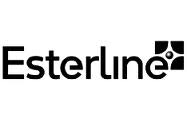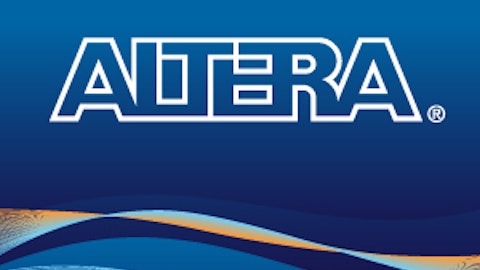On September 28th, Marcia Mason, the General Counsel of Esterline Technologies Corporation (NYSE:ESL), directly acquired 2,500 shares at an average price of $56.17 per share. At Insider Monkey we track insider transactions because on a statistical basis stocks bought by insiders tend to outperform the market (read our discussion of studies on insider trading). In theory, insiders should be wary of buying their company’s stock; their future income is already dependent on its prospects, so why tie a significant portion of their wealth to it as well? The answer- which explains the outperformance of insider buys- is that the insiders are signaling high confidence in the stock. This is particularly the case when we see consensus insider buying. That’s exactly what we’ve seen at Esterline, though Mason’s purchase was the largest. At prices generally between $57 and $58, three Board members bought a total of 4,000 shares between September 24th and September 28th.
The $1.8 billion market cap Esterline Technologies Corporation provides controls, instruments, and sensors for civilian and defense aircraft. In the third quarter of its fiscal year (the quarter ended in July), the company reported a 19% increase in revenue over the same period a year ago. However, costs increased and it also took a goodwill impairment of $52 million, which together drove the company to a $17 million net loss for the quarter (it had earned $38 million in the third fiscal quarter of last year). For the first nine months of the fiscal year, Esterline was down to $51 million in earnings from $114 million at the same point in 2011. Again, the (presumably non-recurring) goodwill impairment was responsible for most of this decline, but costs ex-impairment had driven down profits as well.
Esterline Technologies Corporation trades at a trailing P/E multiple of 26. Wall Street analysts expect performance to pick up in the next fiscal year (and certainly we would hope that there would be no goodwill impairment), and the forward P/E is a fairly reasonable 10. This puts it in value territory if it lives up to analyst expectations. Investors should also consider that while Esterline’s beta of 1.5 is indeed high and indicates that the stock tends to fluctuate to a greater degree than the market, it is not as high as might be worried when considering an aerospace-focused company. Ralph Whitworth’s Relational Investors increased its stake in Esterline by 41% during the second quarter, finishing June with a total of 2.2 million shares. This gave Relational a position in the company worth over $100 million (see more stocks Relational has over $100 million invested in).
Curtiss-Wright Corp. (NYSE:CW) and Eaton Corporation (NYSE:ETN) are good peers for Esterline, and we would also compare the company to Kaman Corporation (NYSE:KAMN) and HEICO Corporation (NYSE:HEI). The first two companies are about as cheap as Esterline on a forward basis: Curtiss-Wright and Eaton trade at 11 and 10 times their respective forward earnings estimates. However, they both carry trailing P/Es of 11, so even taking into account the special factors that drove down Esterline’s recent earnings it seems to be a worse buy. Kaman and HEICO are at the growth end of the spectrum. They are more expensive than Curtiss-Wright or Eaton on a trailing earnings basis, in the 20-26 range of trailing P/Es, but can justify that premium by pointing to double-digit earnings growth rates last quarter compared to the same period in 2011. Continued growth, however, isn’t quite enough to pull them even as Kaman trades at a forward P/E of 13 while HEICO’s multiple is 21. So, from a value perspective, we would prefer to own Curtiss-Wright or Eaton out of these five companies. They look good on a forward basis, and unlike Esterline are already delivering much of the earnings they are expected to have in the coming year rather than relying on growth. Unless an investor puts a good deal of weight on chasing insider buys- which admittedly on a large scale should tend to be a good strategy- they are probably the best buys.






